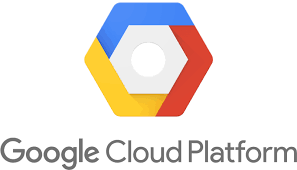How to list all Containers running in Kubernetes Pod ?
This tutorial guides you to list all containers running in kubernetes pod. Let’s see how to use kubectl command to list all of the container images or container names for Pods running in a cluster.
List all containers running in Kubernetes Pod
Note, before you begin this exercise make sure that you have a kubernetes cluster, and kubectl command should be configured so that you would be able to communicate with your cluster.
To create a cluster follow this GCP tutorial Creating a Zonal Cluster.
Once you had created cluster, I will assume that you have Pods with containers running. Now, let’s see how to list all of the Pods running in a cluster for a namespace lat’s say mv using jsonpath.
The following command will fetch all the Pods running in a cluster with namespace mv.
$ kubectl get pods -n mv NAME READY STATUS RESTARTS AGE helloserver-5486975f5c-dr6d2 2/2 Running 0 57m
List all containers by Pod
The following command list all the containers with name by Pod for all namespaces.
$ kubectl get pods --all-namespaces -o=jsonpath='{range .items[*]}{"\n"}{.metadata.name}{":\t"}{range .spec.containers[*]}{.name}{", "}{end}{end}' |sort
canonical-service-controller-manager-66b6979d9d-z9ww2: kube-rbac-proxy, manager,
event-exporter-gke-564fb97f9-5b2q5: event-exporter, prometheus-to-sd-exporter,
fluentbit-gke-9gmhx: fluentbit, fluentbit-gke,
fluentbit-gke-bsx4g: fluentbit, fluentbit-gke,
gke-connect-agent-20210312-01-00-79d6cbb99c-l2b2s: gke-connect-agent-20210312-01-00,
gke-mcs-importer-5d7454bb67-8cj77: gke-mcs-importer,
gke-metrics-agent-cpdlq: gke-metrics-agent,
gke-metrics-agent-rdm97: gke-metrics-agent,
helloserver-5486975f5c-dr6d2: main, istio-proxy,
istiod-asm-191-1-86ccfd8654-fdw4z: discovery,
istiod-asm-191-1-86ccfd8654-mzcts: discovery,
istio-ingressgateway-b5d7bcfbf-rbhlr: istio-proxy,
istio-ingressgateway-b5d7bcfbf-vjtcf: istio-proxy,
kube-dns-57fcf698d8-kg844: kubedns, dnsmasq, sidecar, prometheus-to-sd,
kube-dns-57fcf698d8-wcgwh: kubedns, dnsmasq, sidecar, prometheus-to-sd,
kube-dns-autoscaler-7f89fb6b79-gb56q: autoscaler,
kube-proxy-gke-cluster-1-default-pool-2f3cced3-b492: kube-proxy,
kube-proxy-gke-cluster-1-default-pool-2f3cced3-kvbn: kube-proxy,
l7-default-backend-7fd66b8b88-7nmc4: default-http-backend,
mcs-core-dns-6f76448c9d-rjvzq: mcs-core-dns,
mcs-core-dns-6f76448c9d-zj84k: mcs-core-dns,
mcs-core-dns-autoscaler-7df4c85b74-hxhfg: mcs-core-dns-autoscaler,
metrics-server-v0.3.6-7c5cb99b6f-2clrj: metrics-server, metrics-server-nanny,
pdcsi-node-tgcb4: csi-driver-registrar, gce-pd-driver,
pdcsi-node-xpp79: csi-driver-registrar, gce-pd-driver,
stackdriver-metadata-agent-cluster-level-5ff64fbb78-j4zqh: metadata-agent, metadata-agent-nanny,
By Pod label
To list all the containers filtering by Pod label, run the following command.
$ kubectl get pods --all-namespaces -o=jsonpath="{..image}" -l app=helloserver
By Pod namespace
Finally, to list all containers running in a kubernetes Pod by namespace you need to run the following command.
$ kubectl get pods -n mv -o=jsonpath='{range .items[*]}{"\n"}{.metadata.name}{":\t"}{range .spec.containers[*]}{.name}{", "}{end}{end}' |sort
helloserver-5486975f5c-dr6d2: main, istio-proxy,
From the above response it is understood that there are two containers running inside the Pod “helloserver-5486975f5c-dr6d2” in the namespace “mv“. This is how I check whether the containers are up and running.
Also, there is an alternative to jsonpath. Kubernetes supports go-templates, to format the output.
For example,
$ kubectl get pods --all-namespaces -o go-template --template="{{range .items}}{{range .spec.containers}}{{.name}} {{end}}{{end}}"
kube-rbac-proxy manager gke-connect-agent-20210312-01-00 gke-mcs-importer istio-proxy istio-proxy discovery discovery event-exporter prometheus-to-sd-exporter fluentbit fluentbit-gke fluentbit fluentbit-gke gke-metrics-agent gke-metrics-agent kubedns dnsmasq sidecar prometheus-to-sd kubedns dnsmasq sidecar prometheus-to-sd autoscaler kube-proxy kube-proxy default-http-backend mcs-core-dns mcs-core-dns mcs-core-dns-autoscaler metrics-server metrics-server-nanny csi-driver-registrar gce-pd-driver csi-driver-registrar gce-pd-driver metadata-agent metadata-agent-nanny main istio-proxy
That’s it. Hope it helped 🙂
- How to Explore Docker Container’s File System ?
- Docker EXPOSE Port only to the Host on Google Cloud
- Get Docker Container’s IP Address from the Host
- Copy Files between Host and Docker Container
- Start Stop Restart MariaDB on Linux OS
- kubectl unable to connect to server: x509: certificate signed by unknown authority
- Putty Fatal Error No supported authentication methods available
- How to find which users belongs to a specific group in linux
- Give write permissions for specific user or group for specific folder in linux
- How to remove an image tag from docker hub ?
- Build a Docker Image with a Dockerfile and Cloud Build in GCP?
- How to create GCP project on Google Cloud Platform
- MariaDB – How to set max_connections permanently ?
- Create GCP project on Google Cloud Platform
- Is it possible to change Google Cloud Platform Project ID ?
- Create non-root SSH user account and provide access to specific folders
- Delete docker repository from the docker hub
- Unable to connect to the server: dial tcp i/o timeout

